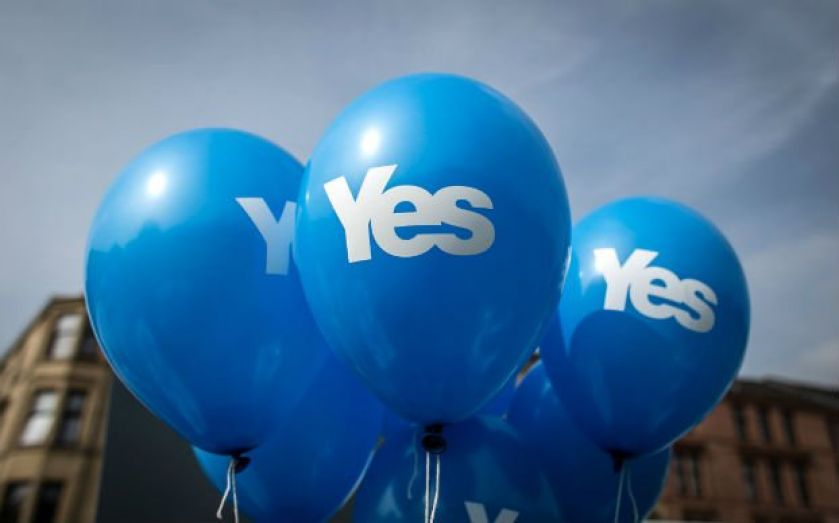Scottish independence: BT, TalkTalk, EE, Telefonica, Vodafone and Three warn of increased costs if Scots vote Yes

Six of Britain's leading telecoms companies are the latest to warn of potential price rises if Scotland votes Yes to independence.
The chiefs of BT, TalkTalk, EE, Telefonica UK, Vodafone UK and Three UK have issued a joint letter warning that the uncertainty around regulation and spectrum allocation, which mobile networks use to operate, could increase costs in an independent Scotland.
In the letter they say:
Specifically, we would need to know how a Scottish telecoms industry would be regulated. Would there be continuity with the current European Union regulatory framework so that we would continue to operate across the border with common infrastructure under a single set of rules?
What approach would the government of an independent Scotland take to the radio spectrum – currently licensed on a UK-wide basis – without which mobile networks cannot operate?
We may also need to modify our networks to reflect the reality of an independent Scotland; and we may need to consider whether to modify the services offered in Scotland, given its relatively demanding topography and relatively low population density.
Any of these factors could lead to increased industry costs.
The firms added that they "remain fully committed to our customers, employees and operations in Scotland," in a letter signed by BT Group's Gavin Patterson, Talk Talk Group's Dido Harding, Telefonica UK's Ronan Dunne, Vodafone UK's Jeroen Hoencamp, EE's Olaf Swantee, and Three UK's David Dyson.
The telecoms companies are the latest to warn that a Yes vote in this week’s referendum is likely to have an impact on business costs after some of Britain’s biggest retailers warned of potential price increases.
John Lewis chairman Sir Charlie Mayfield said that the costs of trading in parts of Scotland which are currently absorbed by the business could emerge if Scotland decides to separate.
Asda boss Andy Clarke said these additional costs were likely to be passed on to consumers warning of food price rises.
"If we were no longer to operate in one state with one market and – broadly – one set of rules, our business model would become more complex. We would have to reflect our cost to operate here," said Clarke.
The bosses of three of Britain’s leading retailers also warned of potential price rises if Scotland votes Yes to independence in an open letter to Scottish newspaper the Daily Record.
The boss of high street favourite Marks and Spencer, Marc Bolland, B&Q owner Kingfisher’s Sir Ian Cheshire and Timpson chief James Timpson said:
We are concerned about the greater complexity of trading across a national border coupled with the uncertainty over big issues such as the single currency and membership of the EU.
The Bank of England and the government have said there will be no currency union with the pound and an independent Scotland would have to find an alternative. Additionally the EU commission has indicated that Scotland would have to re-apply for membership and may require a number of changes to achieve membership.
Within our group there is first-hand experience of trading across national borders – in France, Ireland and across the world. Our experience is that it always leads to more red tape and higher costs and we feel it is important to share this experience.